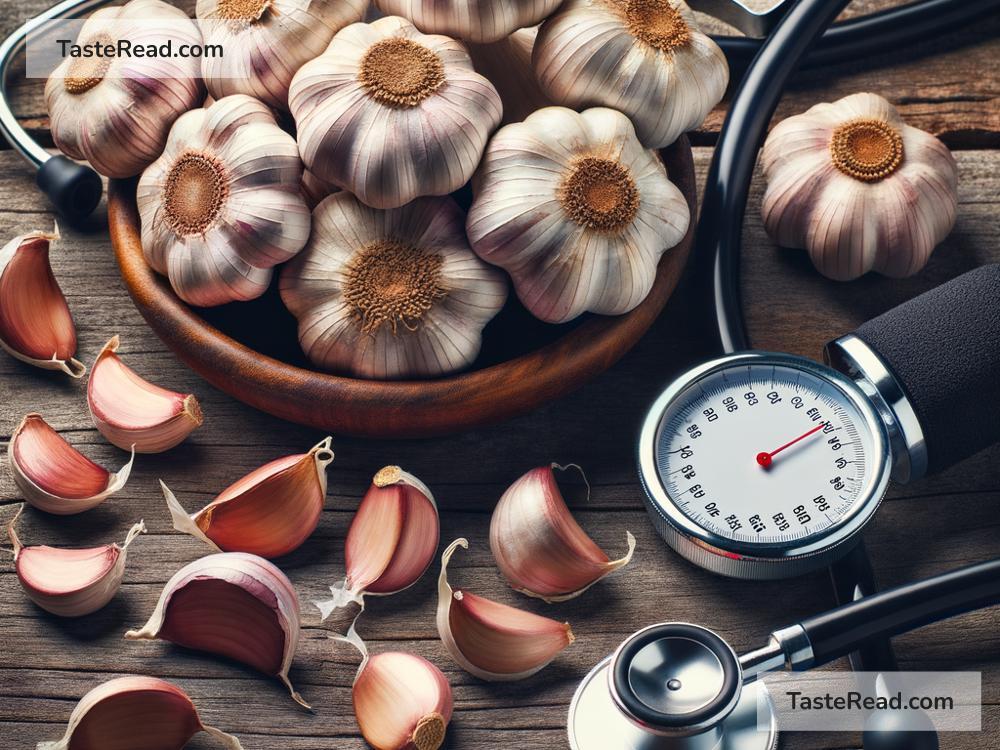Can Garlic Help Lower Blood Pressure?
High blood pressure, also known as hypertension, is a common health issue that affects millions of people worldwide. Left untreated, it can increase the risk of heart disease, stroke, and other serious conditions. While medication is often prescribed to manage high blood pressure, many people are curious about natural solutions that might help. One of these remedies is garlic—a simple kitchen ingredient that’s been used for centuries in cooking and medicine. But can garlic truly help lower blood pressure? Let’s explore this topic in plain English.
What is Garlic?
Garlic is a small, bulb-shaped plant commonly used to flavor dishes. Scientifically known as Allium sativum, garlic is not just a delicious seasoning; it’s packed with nutrients that are good for your health. Garlic contains a compound called allicin, which is believed to provide many of its health benefits, including its potential to reduce blood pressure.
Why High Blood Pressure is a Problem
High blood pressure occurs when the force of blood against the walls of your arteries is consistently too strong. Over time, this extra pressure can damage your arteries, heart, kidneys, and other organs. Many people don’t even realize they have high blood pressure because the condition often has no symptoms. That’s why it’s sometimes referred to as the “silent killer.”
The typical treatment for high blood pressure includes lifestyle changes (like exercising, eating healthier, and reducing stress) and medication. But emerging research suggests that some foods, including garlic, could also make a difference in managing blood pressure levels.
Garlic and Blood Pressure: What Does the Science Say?
Several studies have examined whether garlic has an impact on blood pressure, and many have found positive results. Garlic is believed to help lower blood pressure by relaxing blood vessels and improving blood flow. Here’s what researchers have discovered:
-
Allicin is Key
When garlic is crushed, chopped, or chewed, a compound called allicin is released. Allicin is thought to be the main ingredient behind garlic’s health benefits, including its effect on blood pressure. This compound may help relax the smooth muscle in blood vessel walls, allowing blood to flow more easily. -
A Natural Alternative to Medication
Some studies suggest that garlic supplements or aged garlic extract may be as effective as certain blood pressure medications, especially for people with mild or moderate hypertension. For example, one study found that consuming garlic extract daily resulted in a significant reduction in both systolic (the top number) and diastolic (the bottom number) blood pressure. -
How Much Garlic Do You Need?
While garlic in food has health benefits, you may need a higher dose to see an impact on your blood pressure. Many studies recommend using garlic supplements, often containing standardized amounts of allicin. The typical dose ranges from 600 to 1200 milligrams per day of garlic supplement to support heart health, but you should always consult your doctor before taking supplements.
Benefits of Garlic Beyond Blood Pressure
Garlic doesn’t just help lower blood pressure—it also provides other benefits for your heart and overall health. It can:
- Lower cholesterol levels
- Reduce inflammation in the body
- Improve circulation
- Boost your immune system
- Protect against oxidative damage (from free radicals)
Garlic’s unique combination of nutrients makes it a valuable addition to any healthy diet.
How to Use Garlic for Health Benefits
Here are a few ways to include garlic in your diet to potentially help lower blood pressure:
-
Eat Fresh Garlic
The easiest way to use garlic is by adding it to your meals. Crush or chop fresh garlic and let it sit for 10 minutes before cooking or eating—this activates allicin. You can add garlic to soups, stir-fries, roasted vegetables, or salad dressings. -
Try Garlic Supplements
If the taste or smell of garlic is too strong for you, garlic supplements might be a good option. Aged garlic extract and garlic oil capsules are popular choices. -
Pair Garlic With a Healthy Diet
Garlic works best as part of an overall healthy lifestyle. Combine it with other blood pressure-lowering foods like leafy greens, berries, nuts, and whole grains for maximum effect.
Is Garlic Safe for Everyone?
While garlic is generally safe for most people, it’s important to know that it can have side effects. Eating too much garlic can cause stomach upset, bad breath, or heartburn. Garlic can also thin your blood, which might increase the risk of bleeding if you’re taking blood-thinning medications or preparing for surgery. Always talk to your doctor before adding garlic supplements to your routine, especially if you have any underlying medical conditions or are pregnant.
Conclusion
So, can garlic help lower blood pressure? The answer is promising: scientific research does support the idea that garlic, particularly in supplement form, can improve blood pressure and overall heart health. While garlic may not replace medication entirely, it can be a useful addition to a balanced diet and a healthy lifestyle.
However, like any natural remedy, garlic isn’t a magical cure. If you’re dealing with high blood pressure, it’s important to monitor your numbers regularly, follow your doctor’s advice, and make smart lifestyle choices. Garlic can definitely play a role—but it works best as part of a bigger picture when it comes to heart health!
So, don’t hesitate to toss a few extra cloves of garlic into your meals. Not only will it add flavor to your dishes, but it could also do wonders for your health. Let garlic be your flavorful ally in the fight against high blood pressure!


